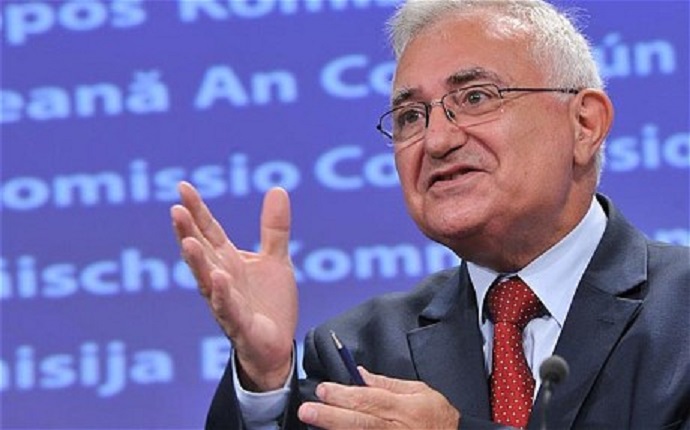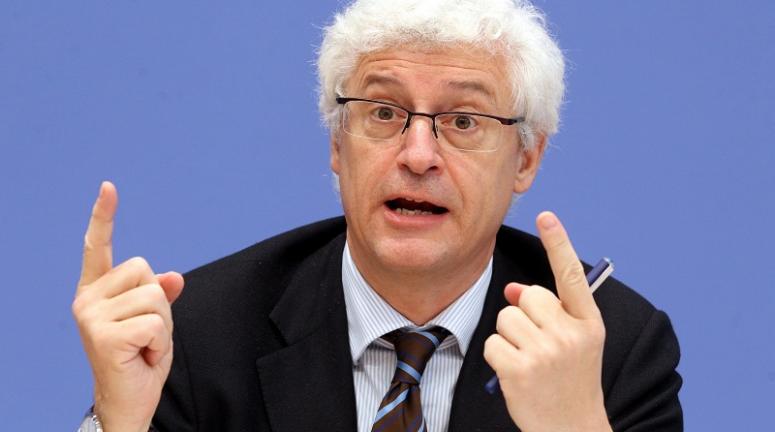Its lobbying efforts in Europe have been unsuccessful and controversial – they led to the forced resignation of John Dalli from the European Commission – but smokeless tobacco maker Swedish Match is now trying its luck on the other side of the Atlantic Ocean.
The Swedish company has filed an application with the US Food and Drug Administration to approve snus – the same tobacco product at the heart of the Dalli allegations – as a “modified risk” product, with fewer health risks than cigarettes.
Snus is a moist powder tobacco product that is placed underneath the upper lip for extended periods of time, which was developed in Sweden. But the EU banned the sale of all oral tobacco products that were not intended for smoking or chewing in 1992 due to health concerns. Sweden only joined the EU three years later, and the product’s popularity led the country to seek – and obtain – a special exemption on the ban.

The snus ban was confirmed in the 2001 Tobacco Products Directive, but a window of opportunity presented itself when the European Commission formally launched the revision of the directive in February 2009. When Mr Dalli became Commissioner for Health a year later, the directive was one of the most important – and contentious – items on his agenda.
Inevitably, the tobacco industry extensively lobbied European institutions, seeking to limit the potential commercial impact of stricter regulation. But the main aim for manufacturers of smokeless tobacco such as Swedish Match – largely through the lobby group ESTOC (European Smokeless Tobacco Council) – was actually to increase their market share, by seeking a reversal of the 1992 ban.

Silvio Zammit was the one accused of soliciting bribes in return for a reversal of the EU’s ban on snus
What happened next is disputed, but what is certain is this: Swedish Match sent a complaint to the European Commission on May 2012, alleging that Mr Dalli was involved in a bribery attempt through his private intermediary, Sliema restaurateur Silvio Zammit. Following an investigation by the EU’s anti-fraud agency OLAF, Commission President José Manuel Barroso asked Mr Dalli to resign the following October.

President José Manuel Barroso asked John Dalli to resign the following October
This resignation triggered investigations by the Malta police, which led to the arraignment of Mr Zammit on bribery charges – the case is still ongoing.

Police Commissioner Peter Paul Zammit
Mr Dalli was also investigated, but in an unusual step, Police Commissioner Peter Paul Zammit declared that the case against him was closed a year ago, weeks into his appointment. Mr Dalli was since appointed as an advisor on health reform by Prime Minister Joseph Muscat.

Giovanni Kessler, the director of the EU’s anti-fraud agency OLAF
Mr Zammit was the one accused of soliciting bribes in return for a reversal of the EU’s ban on snus – he is alleged to have asked for €60 million – but OLAF concluded that Mr Dalli was aware of this request through “unambiguous circumstantial evidence.” OLAF’s own investigation has been subject to criticism, including in the European Parliament.
Mr Dalli, on the other hand, has steadfastly maintained that he has done nothing wrong: he had even filed a defamation suit against Swedish Match in 2012, and insisted that he was set up by the tobacco lobby to delay or derail the tough anti-smoking legislation he was proposing.
The former commissioner also filed a lawsuit against the European Commission, claiming unfair dismissal and seeking a “symbolic compensation” of €1. The case will start to be heard before the European Court of Justice next month.
In the meantime, Foreign Minister Tonio Borg was appointed to replace Mr Dalli, and he presented the revised directive on December 2012 – which was adopted by the European Parliament and the European Council earlier this year. ESTOC’s lobbying efforts proved futile, as the ban on snus was retained.
But there is no such ban in the US, where the sale of snus has grown dramatically over the past decade. According to Swedish Match, US sales have reached around 50 million cans per year, and are expected to grow further.
As things stand, however, tobacco companies cannot market smokeless tobacco and other alternatives – such as electronic cigarettes – as less risky than cigarettes, despite their insistence that they pose less of a health risk than smoking.
Swedish Match is proposing that it would be allowed to state that while its product is addictive, it is “substantially less risky than smoking.” The company also wants permission to remove one of the required health warning labels, insisting that there was “excellent scientific evidence” that the product did not cause oral cancer as claimed.
The science may be still out on this claim, as a number of studies suggest otherwise, including a study of nearly 10,000 Swedish men published in the International Journal of Cancer found a statistically significant increase in the incidence of oral and pharyngeal cancers among daily users of snus.
But the ball is now in the FDA’s hands: a 2009 law empowered the authority to evaluate tobacco products for their safety and approve ones that could be marketed as safer than others, but no products have received this approval yet.
The authority has one year to evaluate Swedish Match’s exhaustive application, which is more than 100,000 pages long.